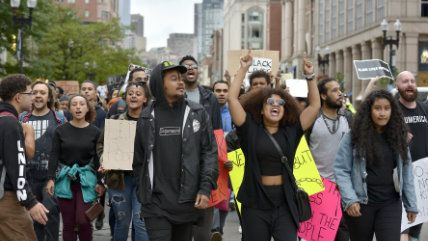Does This Feel Like Peace and Prosperity to You?
What's a voter to think about whether we are experiencing peace and prosperity? It's not exactly a clear-cut answer on either front.


If a political party can deliver peace and prosperity, it usually means it can win re-election.
That idea is simple enough. Applying it to the upcoming election, though, is not so easy. Giving it a try may help illuminate some of the issues involved.
Start with the basic matter of who deserves credit for the peace and prosperity, or blame for the lack of it. Is it the Democrats and President Obama, who control the White House? Or is it the Republicans, who control Congress?
Democrats clearly want to take credit for whatever prosperity there is, and their allies in the press are happy to assist. The other day The New York Times went so far as to publish an entire article headlined "The Obama Years: The Best of Times to Be a Stock Investor," accompanied by a climbing chart of "The Dow Under Obama"—without any mention at all of the Republicans who have controlled a majority in the House of Representatives since the 2010 election and in the Senate since the 2014 election.
Republicans in Congress want to claim enough credit for peace and prosperity to deserve re-election. The Republican presidential candidate, Donald Trump, on the other hand, says that the lack of peace and prosperity are great enough to justify throwing out the incumbents in Washington and replacing them with a relative newcomer such as Trump himself. That puts Trump's campaign on a collision course with the Republican leadership in Congress, or at least in tension with it.
Getting past the question of who gets credit or blame, what's a voter to think about whether we are experiencing peace and prosperity?
It's not exactly a clear-cut answer on either the peace or the prosperity front.
Start with "peace." American troops aren't returning from overseas in flag-draped coffins by the thousands the way they did from Iraq or Vietnam. On the other hand, bombing and shooting attacks in American cities—Orlando, Boston, San Bernardino—make it clear that there is an ongoing violent conflict between militant Islamism and American civilians. The photographs and video footage of ISIS beheadings and additional terrorist attacks on European targets—Nice, Paris, Brussels—suggest that there is an ongoing war, notwithstanding Congress' refusal to declare it. So too do the death toll and refugee flow from Syria, though the "peace" advocates can argue that America has avoided its consequences, at least so far. American planes or drones or other assets are participating in or supporting airstrikes in Iraq, Afghanistan, Yemen, Libya, Somalia, and Syria. Is that "peace"? Or something else?
The "prosperity" picture is similarly clouded. By some measures, things are great. The stock market has set new records (though some of the gains are simply the erosion of the value of the dollars in which the stocks are priced). The unemployment rate, as reported by the Bureau of Labor statistics, stands at a mere 4.9 percent. Yet growth in the Gross Domestic Product has been anemic, and the labor force participation rate has not recovered to pre-Obama levels.
Some parts of America—Silicon Valley, New York City, Washington, Boston—are booming. Other parts—smaller cities and rural counties, places like Detroit or coal country, where nothing has replaced the lost manufacturing jobs—aren't doing nearly as well.
Donald Trump has a reasonable shot at portraying himself as a "change" candidate and Hillary Clinton, who served in the Obama administration and before that in the Senate, as a representative of the status quo. The election will turn on the question of whether the electorate is fed up enough to want him, or satisfied enough to want her.


Show Comments (18)